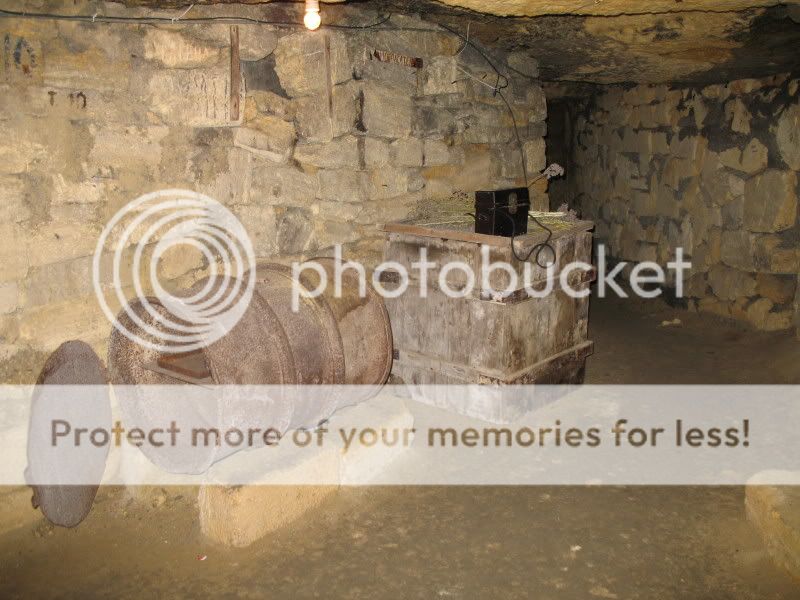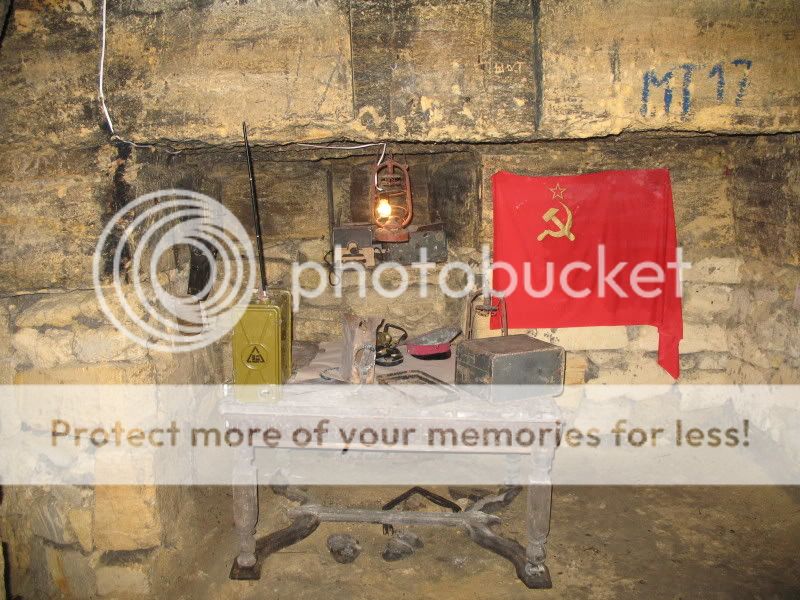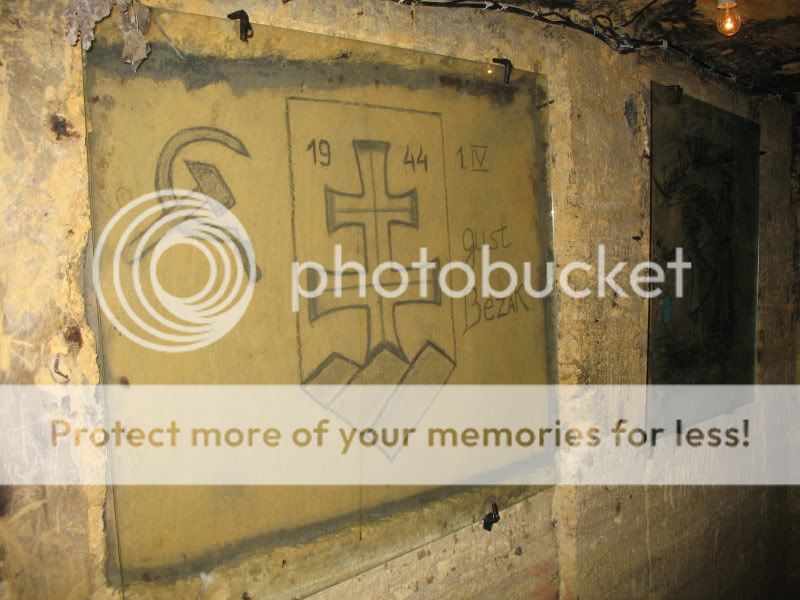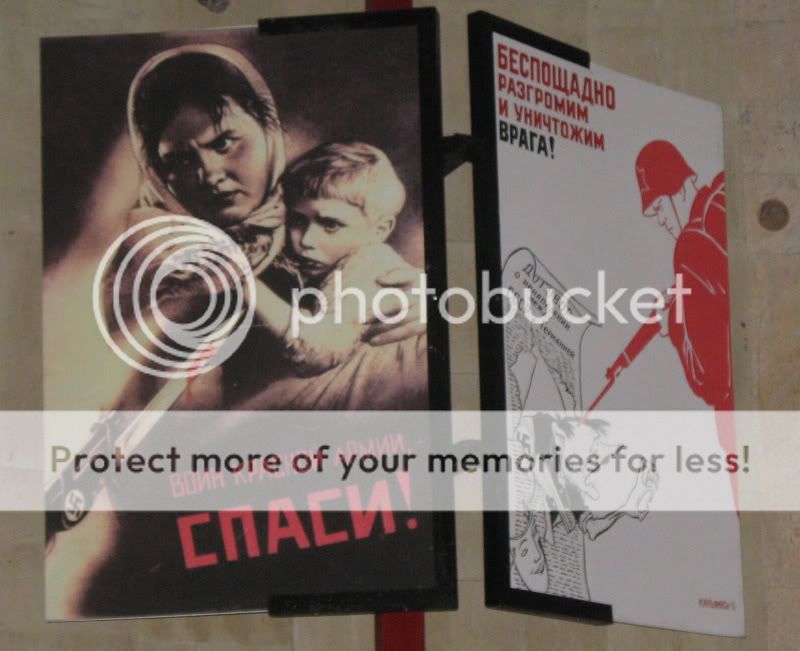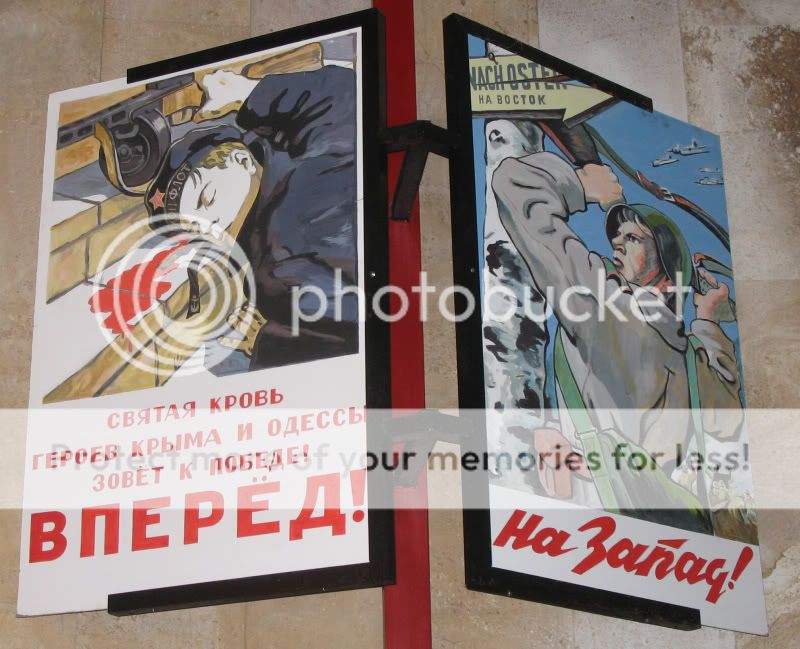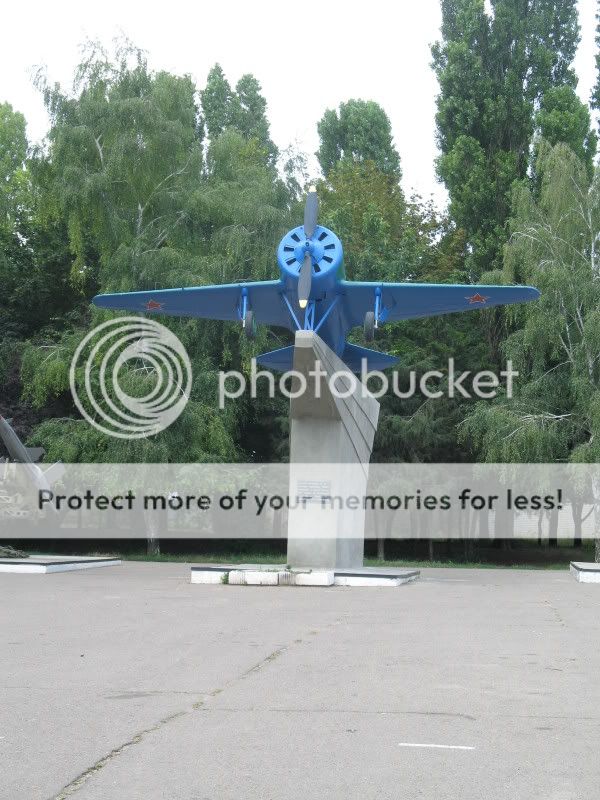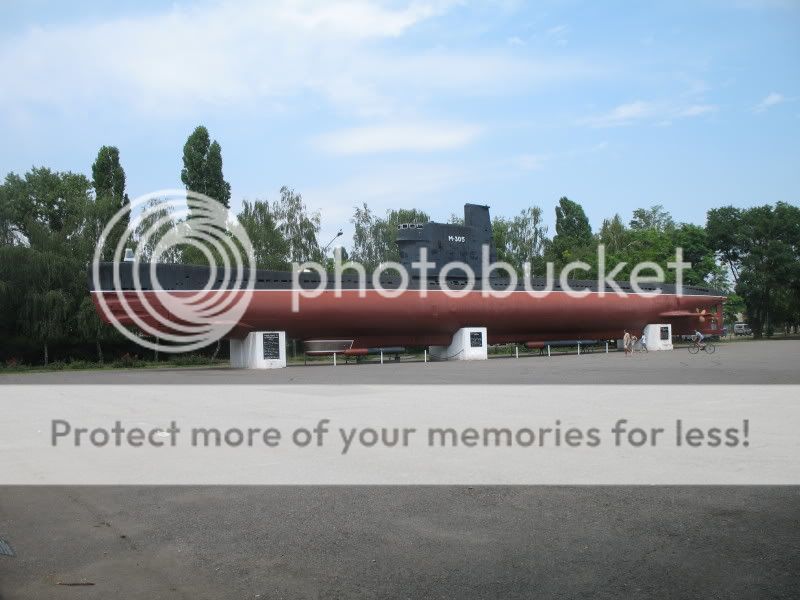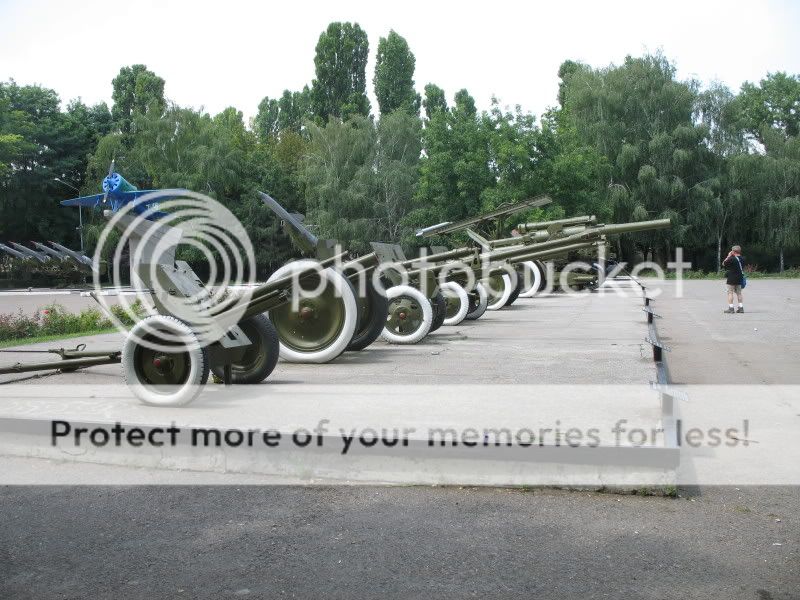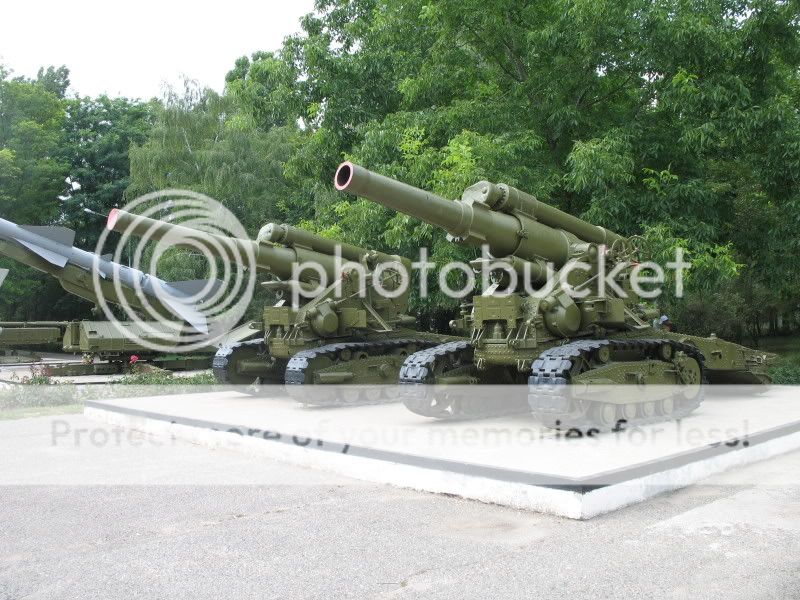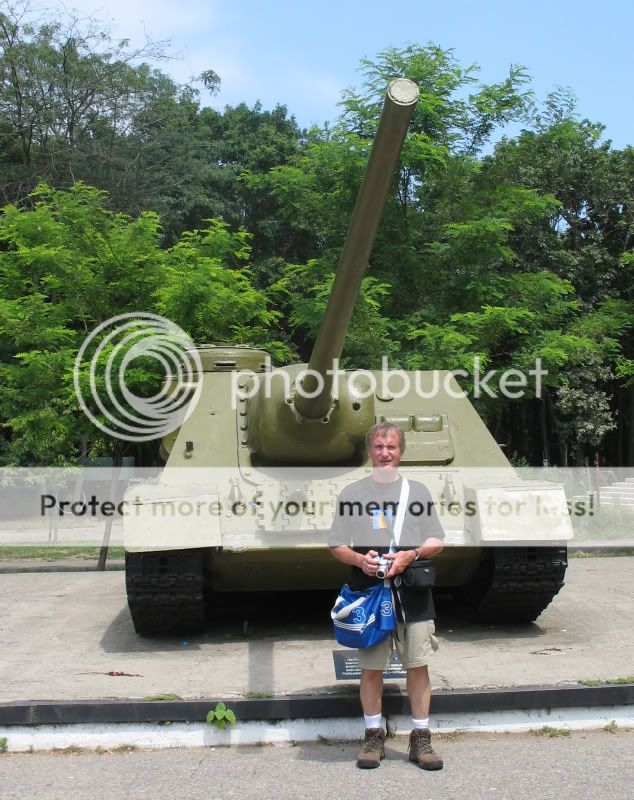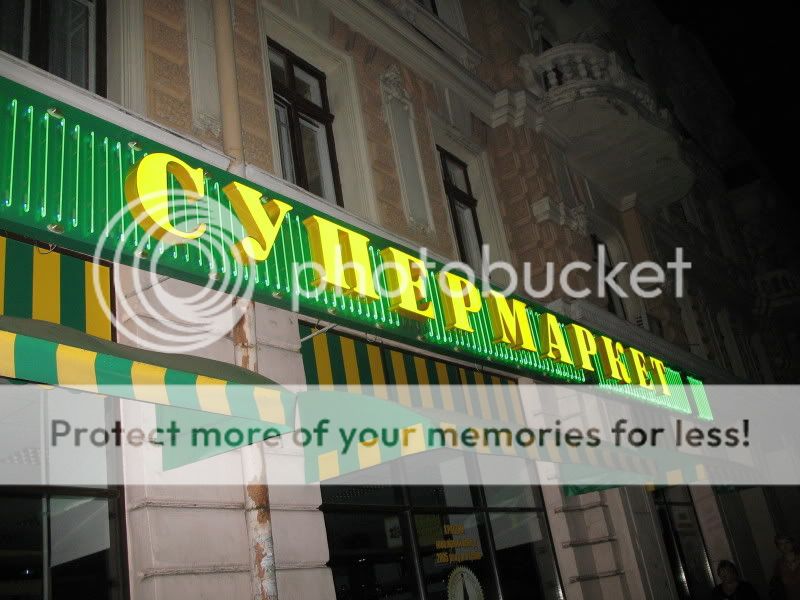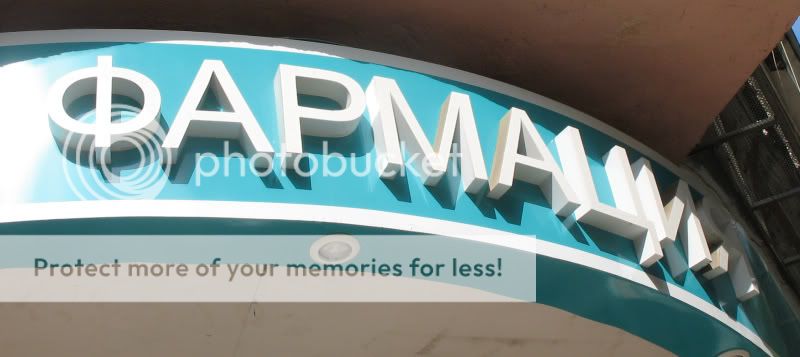Belated TR: Ukraine – Odessa Part II (July 2008)
(Last Updated On: )
During our stay in Odessa we spent one day touring the areas around the city, including the catacombs and a WWII battlefield.
Odessa Catacombs
Odessa is famous for it’s catacombs. There are about 3000 km of tunnels running underneath the city. It is said that the tunnels began during the original building of the city when people were digging for rock to build their structures with. Many houses used to have entrances to the tunnels, but the Soviet regime ordered all of the entrances closed. In WWII, the partisans (a group of Soviet underground resistance) made the catacombs their home, generally only coming out at night. Because of this, the Soviet government preserved the catacombs to memorialize the heroic partisan efforts.
This is the only entrance to the catacombs today, or so we are told. Today, you are required to enter the catacombs only with a guide.
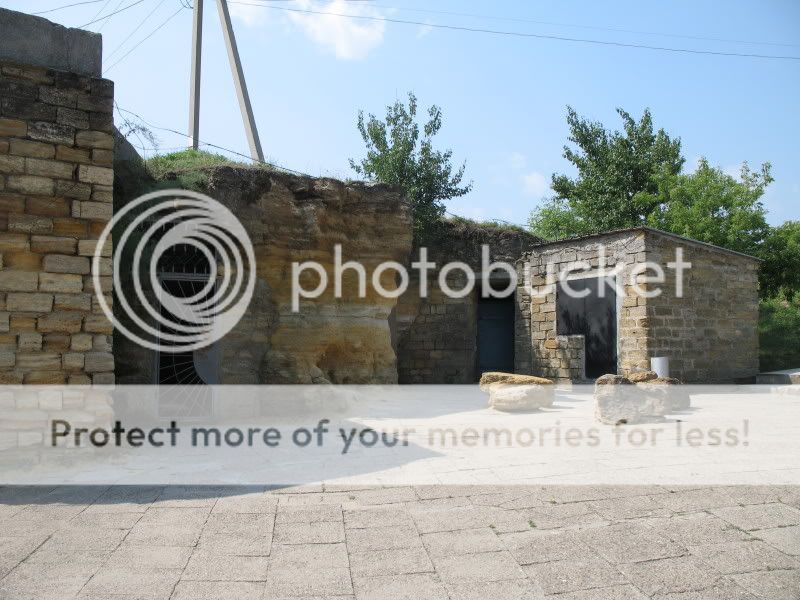
The “tour” of the catacombs only takes you for maybe 1/2 of a mile. On display, they have miscellaneous partisan paraphernalia from when the group of partisans actually inhabited these catacombs.
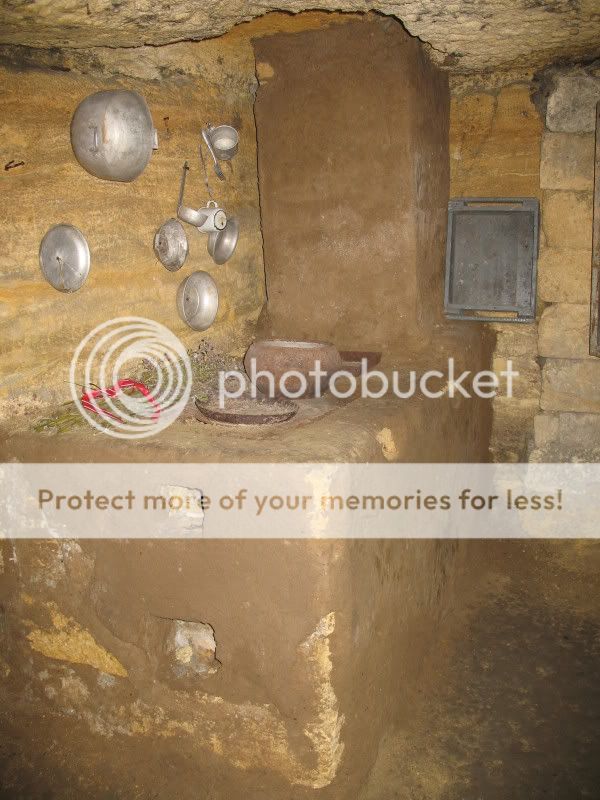
The tour ends with an exit at the partisan museum (as shown in the Ukrainian sign).
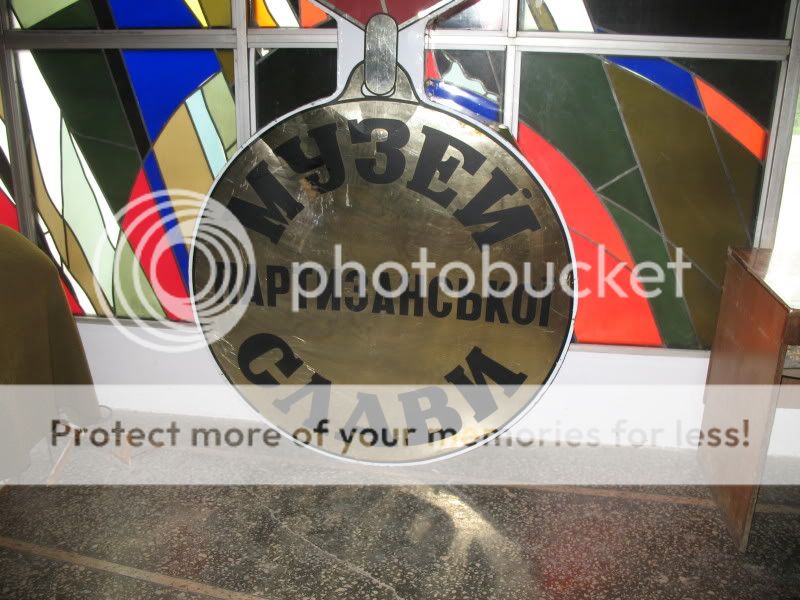
Inside the museum, there are a bunch of signs on display showing Soviet propaganda. I found these signs very interesting.
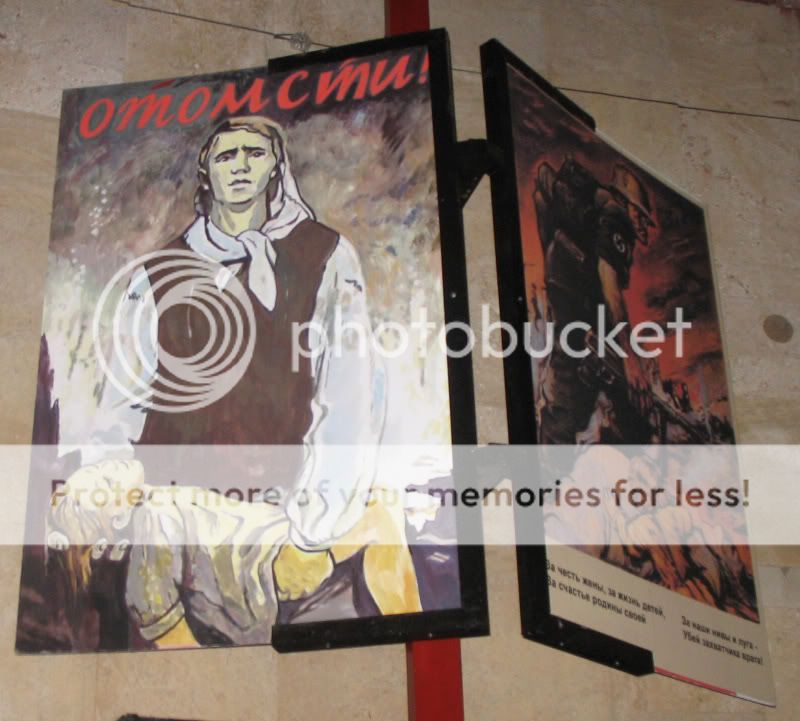
You can watch this video to get a deeper understanding of the history of the catacombs!
Battery 411
Getting to Battery 411 was another adventure in Ukrainian public transportation. Not only were we once again stuck on a super-stuffed minibus hotter than a Turkey on Thanksgiving, we also got charged twice for the same bus. Yep, that’s right. That’s Ukraine for ya! Here’s a picture of the minibus station near Battery 411.
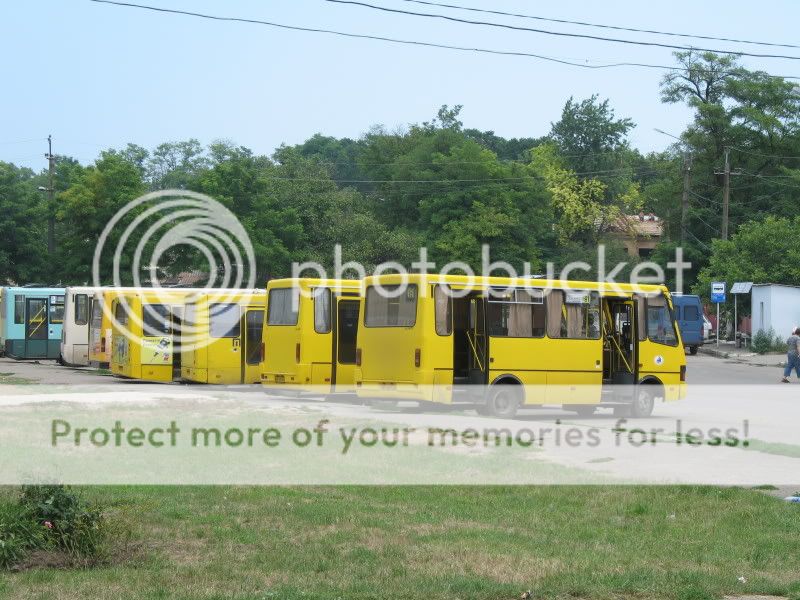
What is Battery 411? Battery 411 is a battlefield from WWII just outside of Odessa. Odessa was an important scene during WWII and is known for the “Siege of Odessa“. At the time of this battle in 1941, the Soviet Russian forces were battling the German Fascist forces. The Romanians, German allies, invaded Ukraine and a battle was fought for 73 days until Odessa was sieged by the Germans. This is when the partisans (mentioned in the catacombs section above) went into hiding, trying to break Odessa free of the Fascists. Eventually, the siege ended in 1944 and was once again Soviet territory.
Remnants of trenches used in WWII.
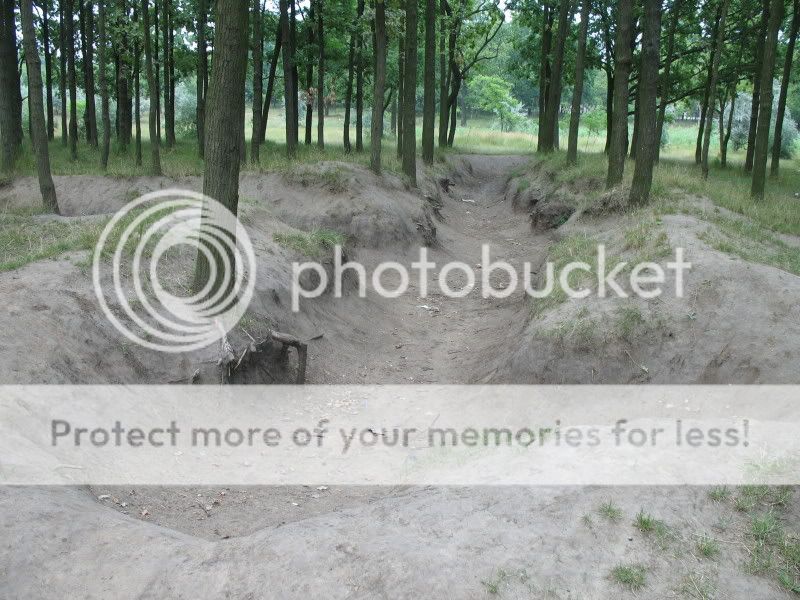
Battery 411 displays planes, boats, cannons, and tanks used in WWII.
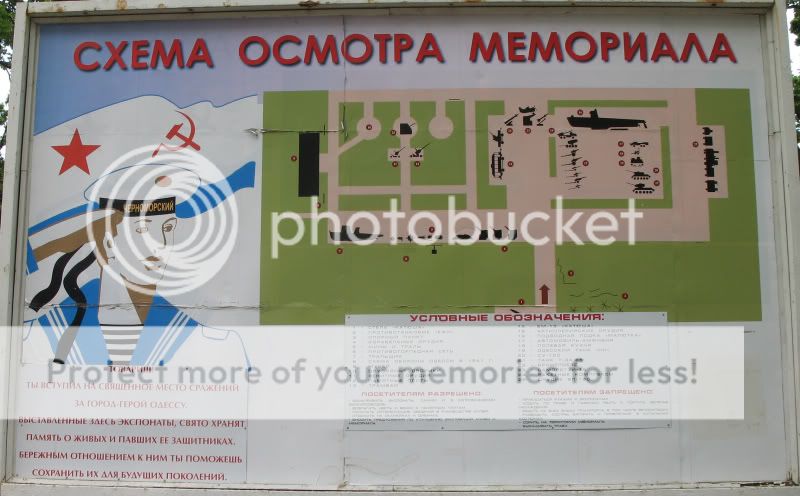
Here’s a video showing pictures from the battle of Odessa.
Ukrainian Language
I always enjoy learning what I can about new languages. Visiting countries like Ukraine, Bulgaria, and Russia is fun because you have to learn a new alphabet based on Cyrillic. Once you learn the alphabet, however, it’s amazing what you can understand. Many words are still the same in our language as they are in Ukrainian!
“Optica” – Store for prescription glasses, etc.
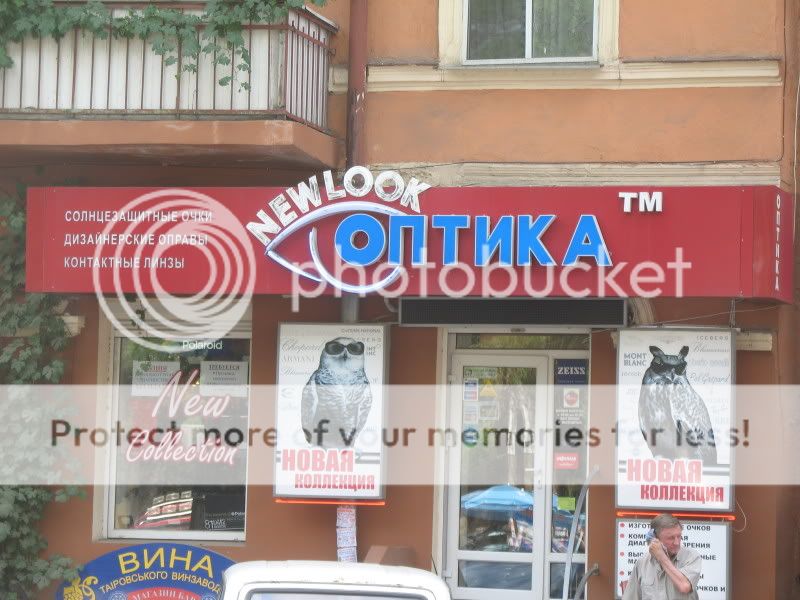
Above the advertisements reads “Odessa”. The advertisement to the left of the camera reads “Super Credit”.
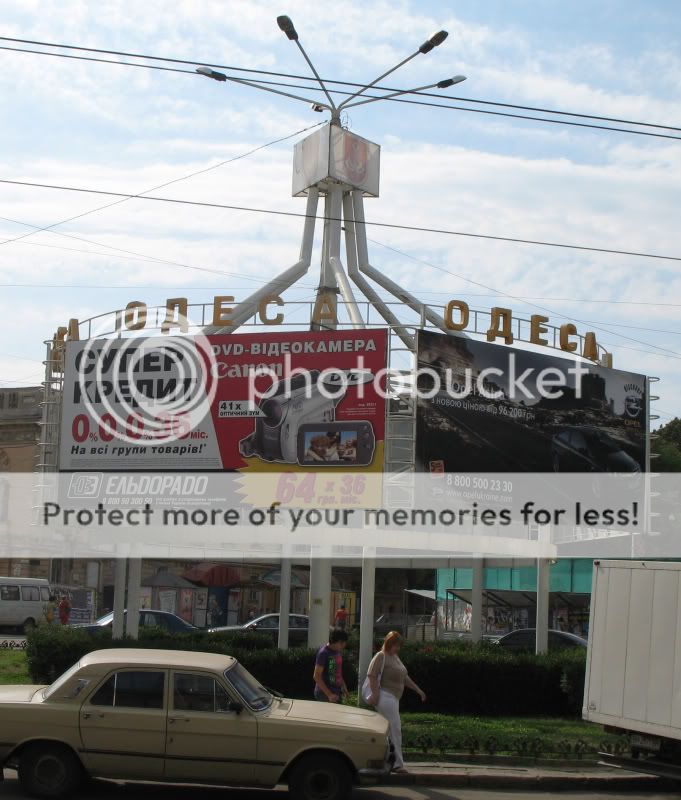
Trains
Trains were our primary mode of transportation through Ukraine. Here is a picture of the Odessa train station. The word on top is pronounced “vokzal”, the Ukrainian word for train station.
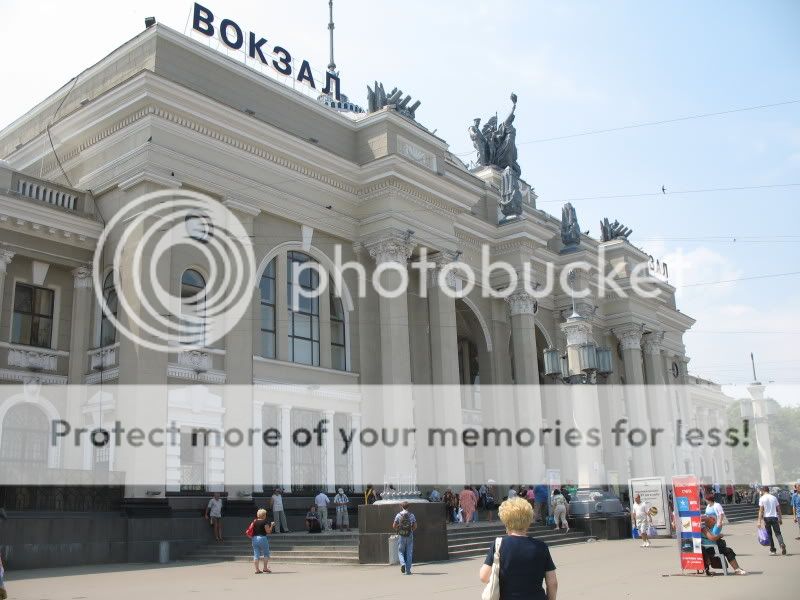
Typical train. The sign on the train it says it’s the restaurant car.

Sign stating which two cities this train travels between. This particular train goes between Odessa and Simferopol.
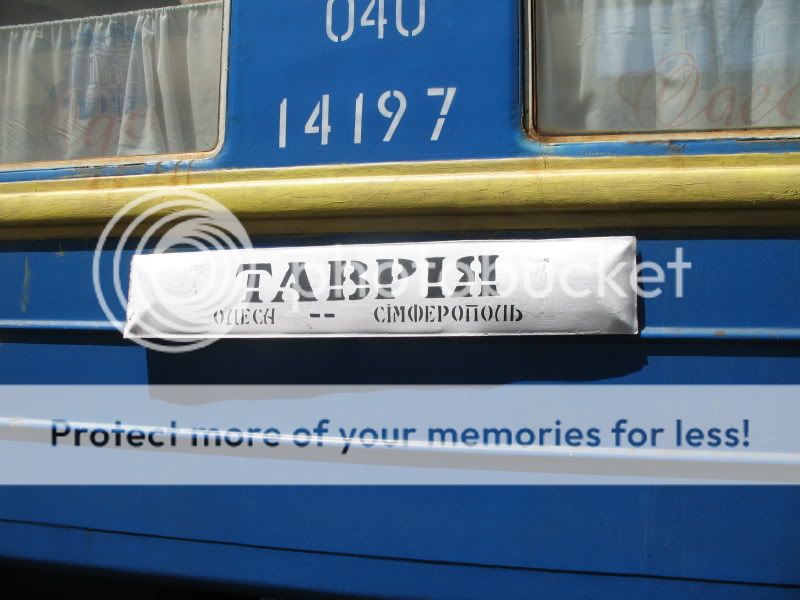
On every train we had a sleeper car as our transport was usually through the night.
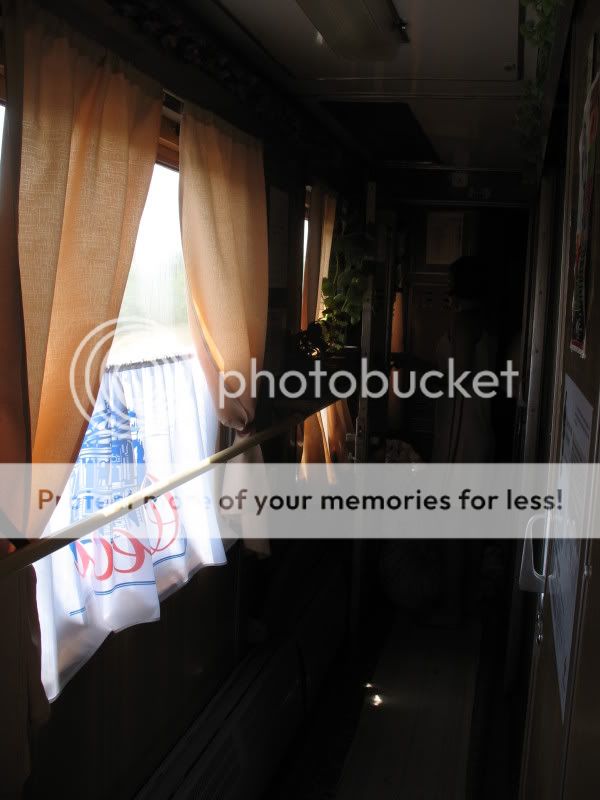
Typical scenery from the train – flat. Ukraine was the Soviet Union’s “breadbasket”.
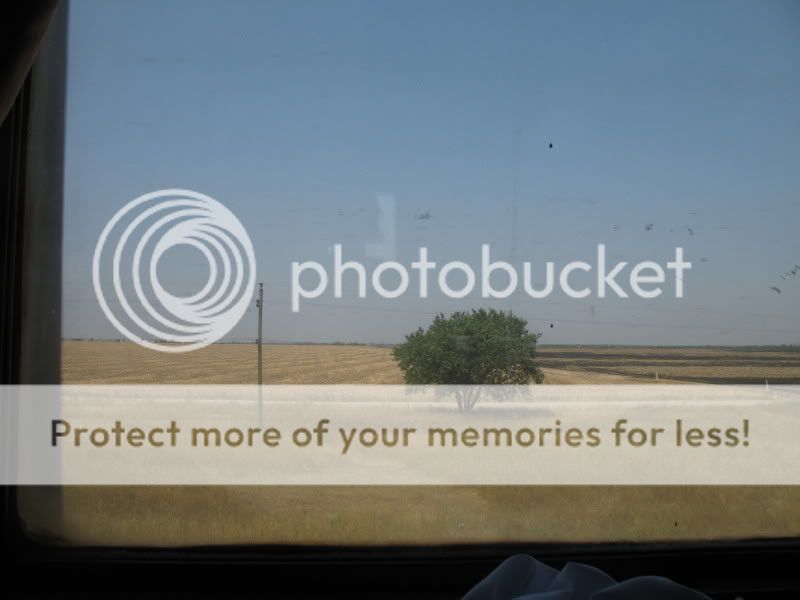
The train station in Simferopol
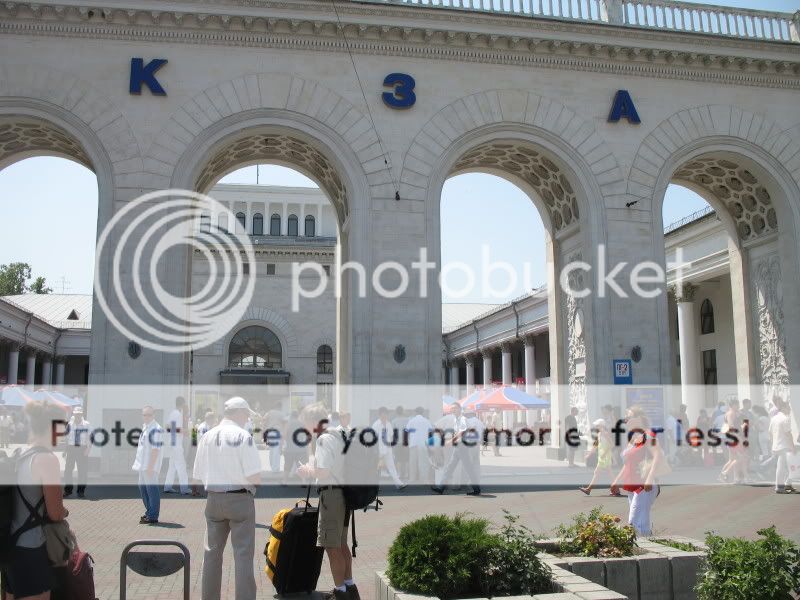
This concludes the Odessa part of my trip. But, still more pictures to come from Yalta and other parts of the Crimea!
- Mount Buckskin (17 May 2020) - May 28, 2020
- Horseshoe Ski (14 May 2020) – The mountain whose journey nearly killed me - May 27, 2020
- Sayres X-Rated Ski (10 May 2020) - May 19, 2020

